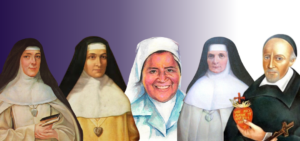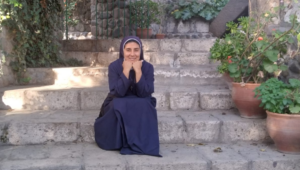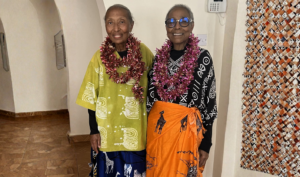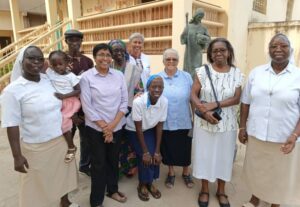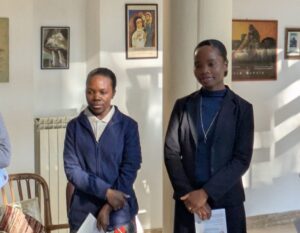By Good Shepherd International Foundation (GSIF)
The humanitarian situation in the Democratic Republic of the Congo continues to deteriorate following the fall of Goma and Bukavu, the respective capitals of North and South Kivu. For years, the country has been plagued by cycles de violence, particularly in the East, where the proliferation of armed groups, ethnic tensions and competition for natural resources have led to chronic instability. The latest escalation has resulted in the deaths of thousands of people and forced 400,000 families to flee their homes in January alone. This widespread displacement has not only uprooted communities but has also resulted in serious human rights violations and abuses, increased economic instability and social distress.
Thousands of families – mostly women and children – are seeking refuge in Lualaba Province, where Bon Pasteur Kolwezi operates. They come from the most conflict-affected areas, in North Kivu, South Kivu and Ituri. These families have fled with little more than clothes on their backs, leaving behind their homes, livelihoods and belongings. Upon arrival in Kolwezi, they find themselves without permanent shelter, income or access to basic services. Many are forced to stay in overcrowded host households, where resources are already stretched thin. Others live in makeshift shelters or on the streets. With little or no access to safe drinking water and sanitation, the risk of water-borne diseases is escalating.
 On the ground, Bon Pasteur Kolwezi moved swiftly to provide emergency support by distributing food, hygiene kits , and clean water to new arrivals. Women and children are bearing the brunt of the war, suffering violence and serious human rights violations. To help them heal their wounds and rebuild, Bon Pasteur has provided psychological, trauma counseling and health support. But by focusing on long-term recovery, their efforts go beyond immediate emergency support: displaced children have been integrated into Bon Pasteur school, with school supplies, uniforms, and textbooks being covered, while women have been assisted in finding income-generating opportunities through small-scale business activities and vocational training. However, many displaced families are still on the waiting list due to the increased demand for services.
On the ground, Bon Pasteur Kolwezi moved swiftly to provide emergency support by distributing food, hygiene kits , and clean water to new arrivals. Women and children are bearing the brunt of the war, suffering violence and serious human rights violations. To help them heal their wounds and rebuild, Bon Pasteur has provided psychological, trauma counseling and health support. But by focusing on long-term recovery, their efforts go beyond immediate emergency support: displaced children have been integrated into Bon Pasteur school, with school supplies, uniforms, and textbooks being covered, while women have been assisted in finding income-generating opportunities through small-scale business activities and vocational training. However, many displaced families are still on the waiting list due to the increased demand for services.
Rehema, a widow from Goma, is one of them. She lost her husband to rebel forces and was forced to flee her home with 4 of her 6 children. After a long, exhausting, and dangerous journey to reach safety, they were taken in by a local family in Kolwezi. After months of displacement, her children finally returned to school, thanks to the support of Bon Pasteur Kolwezi. Rehema, for her part, enrolled in vocational training in tailoring: she learned how to create handmade clothing and set up her own business. By selling her products on the local market, she found a way to become financially stable and support her children without relying on external aid. “This newfound stability has given me a sense of independence and dignity, which I thought I had lost forever since we left Ghoma”.
Many families like Rehema’s are in a similar situation. While the sisters and partners in mission are mobilizing all the existing resources, continued rebel activity suggests that displacement will persist, with more people seeking refuge in safer provinces like Lualaba. With no help from the government or a structured national plan, local organizations like Bon Pasteur will continue to bear the burden. Urgent support in education, livelihoods, food assistance, and psychosocial care is critical to ensuring that these families regain stability and dignity.
In response to the crisis, Bon Pasteur is scaling up its emergency and protection response in collaboration with GSIF and other partners, committed to assisting the displaced Congolese families unjustly caught in the crossfire.

